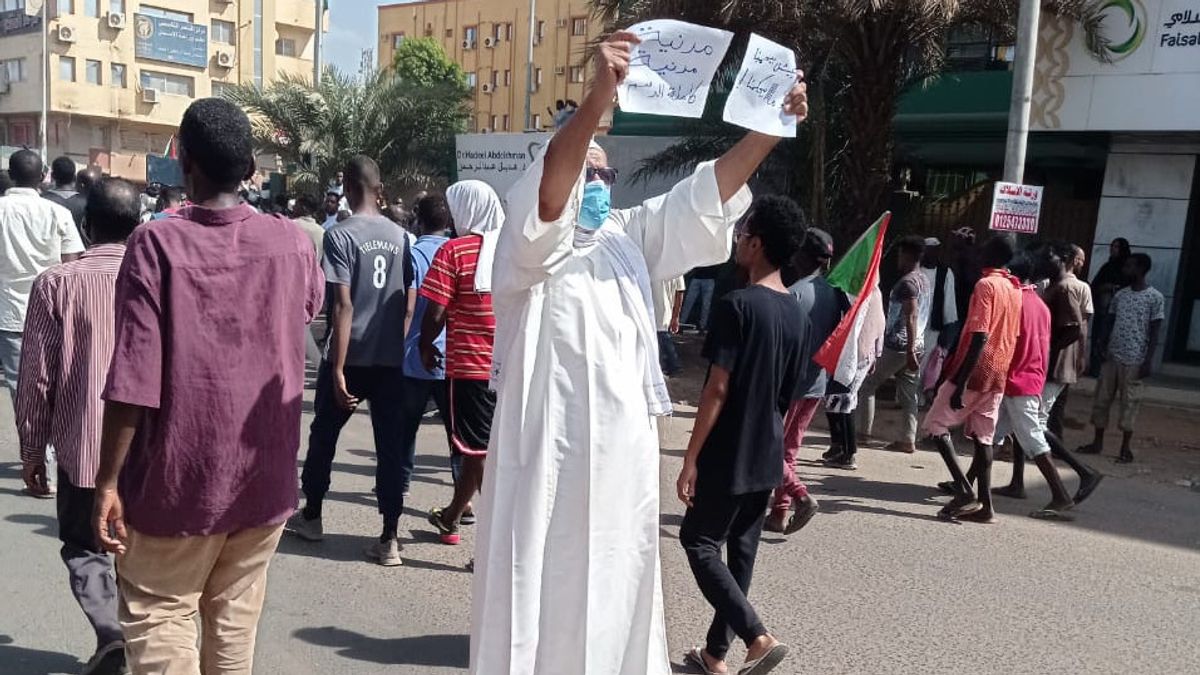JAKARTA - The United Nations warned the conflict in Sudan could force 800,000 people to leave the country, as fighting between competing military factions continues in the capital despite previous ceasefire agreements.
Hundreds of people were killed and thousands injured during 16 days of fighting since a dispute between Sudanese soldiers and paramilitary Rapid Support Forces (RSF) erupted into armed conflict on April 15.
The crisis has catastrophic humanity, undermined part of Khartoum, risked regional power withdrawals and re-triggered conflict in the Darfur region.
Many are concerned about their lives in the struggle for power between the military commander and the head of the RSF, who share control of the government after the 2021 coup, but clashed over plans to transition to civilian rule.
Both sides agreed on Sunday to extend the ceasefire which was heavily violated for 72 hours. The United Nations told Reuters the two sides could hold ceasefire talks in Saudi Arabia.
However, airstrikes and artillery were heard on Monday as smoke rose in Khartoum and neighboring towns.
UN official Raouf Marou said the organization's refugee agency (UNHCR) planned an exodus of 815,000 people, including 580,000 Sudanese and foreign refugees who now live in the country. Meanwhile, Sudan's population is around 46 million people.
"About 73,000 have left Sudan," he said.
Meanwhile, Egypt reported 40,000 Sudanese had crossed its border, and those traveling said conditions were difficult. Others have gone to Chad, South Sudan, and Ethiopia, or sailed across the Red Sea to Saudi Arabia by evacuation ship.
So far, at least 528 people have died and 4,599 have been injured in the conflict, Sudan's Ministry of Health said. Meanwhile, the United Nations has reported a similar death toll, but believes that the actual number is much higher.
It is known that foreign countries evacuated their citizens over the past week through operations on land, sea, and air. However, several countries ended these efforts.
Meanwhile, Sudanese people who live face difficulties and dangers.
"I appeared to work for two or three hours then I closed because it was not safe," said Abdelbagi, a barber in Khartoum who said he had to keep working because prices went up.
People who took to the streets on Monday were shocked by the situation.
"We saw bodies. Industrial areas were all looted. We saw people carrying TVs on their backs and large sacks looted from factories," said Mohamed Ezzeldin.
Electricity and water supply is uncertain, there is little food or fuel, most hospitals and clinics are not working, while soaring transportation costs make it even more difficult to leave.
"The scales and speeds that occur in Sudan have never happened before," said Martin Griffiths, senior UN official for humanitarian and emergency aid who will visit Sudan on Tuesday.
The United Nations and other aid organizations have suspended service, although the World Food Program said it would resume operations in safer areas on Monday, after staff were killed early in the conflict.
The English, Chinese, Japanese, Arabic, and French versions are automatically generated by the AI. So there may still be inaccuracies in translating, please always see Indonesian as our main language. (system supported by DigitalSiber.id)













